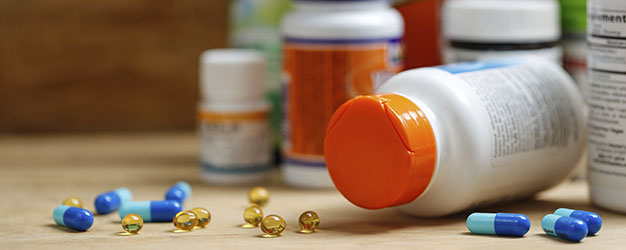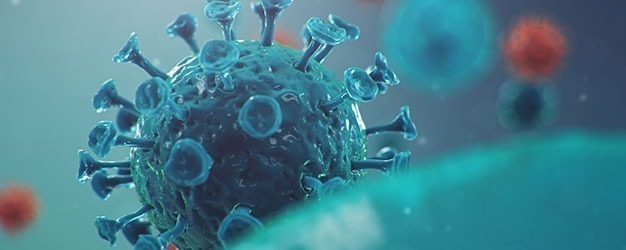Insights > Client Alerts
Client Alerts
Life Sciences Newsletter No.5 – August 2021
3 de setembro de 2021

[vc_row][vc_column][vc_column_text]Our Public and Regulatory Law team presents the fifth edition of the Life Sciences Newsletter, with a compilation of the main news and information of the area occurred in August.
Demarest’s Public and Regulatory Law team continues to monitor developments in the Life Sciences area, and is available to provide any clarification or further information on these and other topics.
Happy reading!
Read the fourth issue here.
[/vc_column_text][vc_empty_space height=”50px”][vc_column_text el_id=”materia1″]
ANVISA – National Health Surveillance Agency
New standards for toiletries and cosmetics
On August 11, the National Health Surveillance Agency (ANVISA) published three new resolutions, RDCs (Resolution of the Collegiate Board) 528, 529 and 530, which increment and innovate the standardization related to personal care products, cosmetics and perfumes.
The first, RDC 528/2021, regulates elements of the preservative action allowed in this category of products, listing the description of 60 substances with their respective concentration limit. According to the Resolution, the association of preservatives is allowed, as long as their individual concentration limits are respected.
The second, RDC 529/2021, prohibits the use of 1404 substances, listed in its annex, in personal care products, cosmetics and perfumes. The presence of such prohibited substances will only be permitted in cases where they appear only as traces if they are technologically unavoidable under the correct manufacturing procedures, and provided that the finished product is proven to be safe.
Finally, RDC 530/2021 contains a list of more than 100 elements that these products must not contain, except under specific conditions, with restrictions established by ANVISA. The Resolution pays special attention to substances identified as significant causes of allergies, requiring their easy identification on labels, when their concentration exceeds 0.001% in non-rinse products and 0.01% in rinse-off products.
All of the above Resolutions incorporate the sanitary standards established within Mercosur, showing an effort to standardize regulatory criteria among country members, a fact that facilitates international trade. In addition, the three Resolutions establish a 36-month period for adaptation to the new parameters, allowing products manufactured before their publication to be marketed until the respective expiration date.[/vc_column_text][vc_empty_space height=”50px”][vc_column_text el_id=”materia2″]
ANVISA – National Health Surveillance Agency
New list of traditional herbal products
The new list of herbal products (PTF’s) subject to notification from National Health Surveillance Agency (ANVISA) has been in effect since August 10. The new products listed can now be produced by authorized companies, upon notification to ANVISA and through obtaining clearance by the Agency.
In this regard, the new list includes, in the simplified notification system, 196 formulations subject to notification, with 131 formulations in the solid products line, 49 formulations in the liquid line and 16 formulations in the semi-solid line. The complete list can be viewed through the link below: https://www.gov.br/anvisa/pt-br/setorregulado/regularizacao/medicamentos/fitoterapicos-dinamizados-e-especificos/informes/fitoterapicos/texto-tecnico-estatico-para-publicar-na-pagina-da-area.pdf[/vc_column_text][vc_empty_space height=”50px”][vc_column_text el_id=”materia3″]
MAPA – Ministry of Agriculture, Livestock and Food Supply
Public consultation on agricultural pesticides
On August 16, the Ministry of Agriculture, Livestock and Food Supply opened a Public Consultation for contributions to the proposed Normative Instruction that intends to regulate criteria for the accreditation and inspection of public and private entities for research and experimentation with pesticides, as well as the requirements for conducting studies and reports on agronomic efficiency and feasibility for the purpose of registering pesticides, among others. The Public Consultation will be available for a period of 60 days, ending on October 15, 2021.
The abovementioned draft Normative Instruction aims to make the pesticides sector more open to innovation and, at the same time, improve the mechanisms for protecting the quality of products.
Technical contributions to the Public Consultation must be sent, upon prior registration, to the Regulatory Act Monitoring System (Sisman), through the following link: . The referred registration can be requested by following link: https://sistemasweb.agricultura.gov.br/solicita/manterUsuarioExt.action . Access to the entire content of the proposed text can be found at the following link: https://www.gov.br/agricultura/pt-br/acesso-a-informacao/participacao-social/consultas-publicas/consulta-publica-credenciamento-e-fiscalizacao-de-entidades-publicas-e-privadas-para-realizacao-de-pesquisa-e-experimentacao-com-agrotoxicos[/vc_column_text][vc_empty_space height=”50px”][vc_column_text el_id=”materia4″]
CMED – Chamber of Medicine Market Regulation
Committee approves priority for registration and purchase of medicines based on national APIs
In August, the Chamber of Deputies’ Committee on Social Security and Family approved Bill 4209/19, in the form of its substitute, which establishes that every drug with an active pharmaceutical ingredient (API) produced in Brazil will have priority in the registration and other analyses under the responsibility of the National Health Surveillance Agency (ANVISA).
With regard to registrations within the scope of ANVISA, the text intends to insert new provisions in the Sanitary Surveillance Law on Pharmaceutical Products, which would include reduced timeframes, regarding the evaluation and final decision for such products.
In addition to the abovementioned provisions, the Bill inserted an important provision that gives priority to strategic medicines of the Unified Health System (SUS) with APIs manufactured nationally, with regard to purchases by the government. Therefore, this Bill aims to bring a significant change to the Law on Public Procurement and Administrative Contracts, changing the margin of preference in the purchase of such drugs by 10%, 15% and 20%, depending on the degree of production integration to be defined in the future in regulation.
Bill 4209/19 and its approval represent a significant movement by the Legislative branch in favor of incentivizing and strengthening the Brazilian Pharmaceutical Industry, targeting its most deficient area, which is the production of inputs and raw materials. Despite approval by the Social Security and Family Committee, the proposed Bill is still to be analyzed by the Constitution and Justice and Citizenship Committee, following the Plenary’s approval.[/vc_column_text][vc_empty_space height=”50px”][vc_column_text el_id=”materia5″]
ANVISA – National Health Surveillance Agency
Simplified procedure for Changes to sanitizer labeling
The National Health Surveillance Agency (ANVISA), through the Resolution of the Collegiate Board (RDC) 492/2021, simplified the procedures and requirements for changing the labeling of sanitizing products. In the simplified procedure, the holder of the regularization must submit an application for the change, but may implement it immediately, regardless of prior opinion by ANVISA.
The implemented changes significantly reduce bureaucracy in these small procedures, including the automatic approval of layout changes, label dimensions and promotional messages, among other changes. However, only changes that do not modify any mandatory or specific labeling requirements already established in the rules in force for such labeling may be subject to the simplified procedure.
According to ANVISA, the changes that are subject to simplification may be communicated by the specific subject code “30023 – Reg. Saneantes. – Alteração de Rótulo (Simplificada)”.[/vc_column_text][vc_empty_space height=”50px”][vc_column_text]
ANVISA – National Health Surveillance Agency
Approval of another cannabis-based product
Almost two years after the publication of Resolution of the Collegiate Board (RDC) 327/2019, which allowed the registration and sale of cannabis-based products, the Brazilian market will continue to advance within the scope of this regulatory sandbox with the registration of another product.
Currently, ANVISA has three products of this kind duly registered in the Agency’s system, showing that, while still in its infancy, the expansion of the medical cannabis market is a reality in Brazil. This market growth may be an important factor to drive discussions on the Cannabis Regulatory Framework Bill in Congress. For more information about this Bill, check out our Newsletter #1.[/vc_column_text][vc_empty_space height=”50px”][vc_column_text]
ANVISA – National Health Surveillance Agency
Extension of temporary relaxation of rules for importation of medical devices and essential drugs in the fight against COVID-19
On August 30, the National Health Surveillance Agency (ANVISA), once again, extended the validity of the Collegiate Board Resolution (RDC) 483/2021, which deals, on an extraordinary and temporary basis, with the easing of requirements for the import of new medical devices and medicines identified as priority for use in healthcare services in light of the Covid-19 pandemic.
With the granting of this new extension, RDC 483 will remain in effect until November 13, 2021. For more information on the provisions of this RDC, check out our Newsletter No. 2.[/vc_column_text][/vc_column][/vc_row]
Áreas Relacionadas











